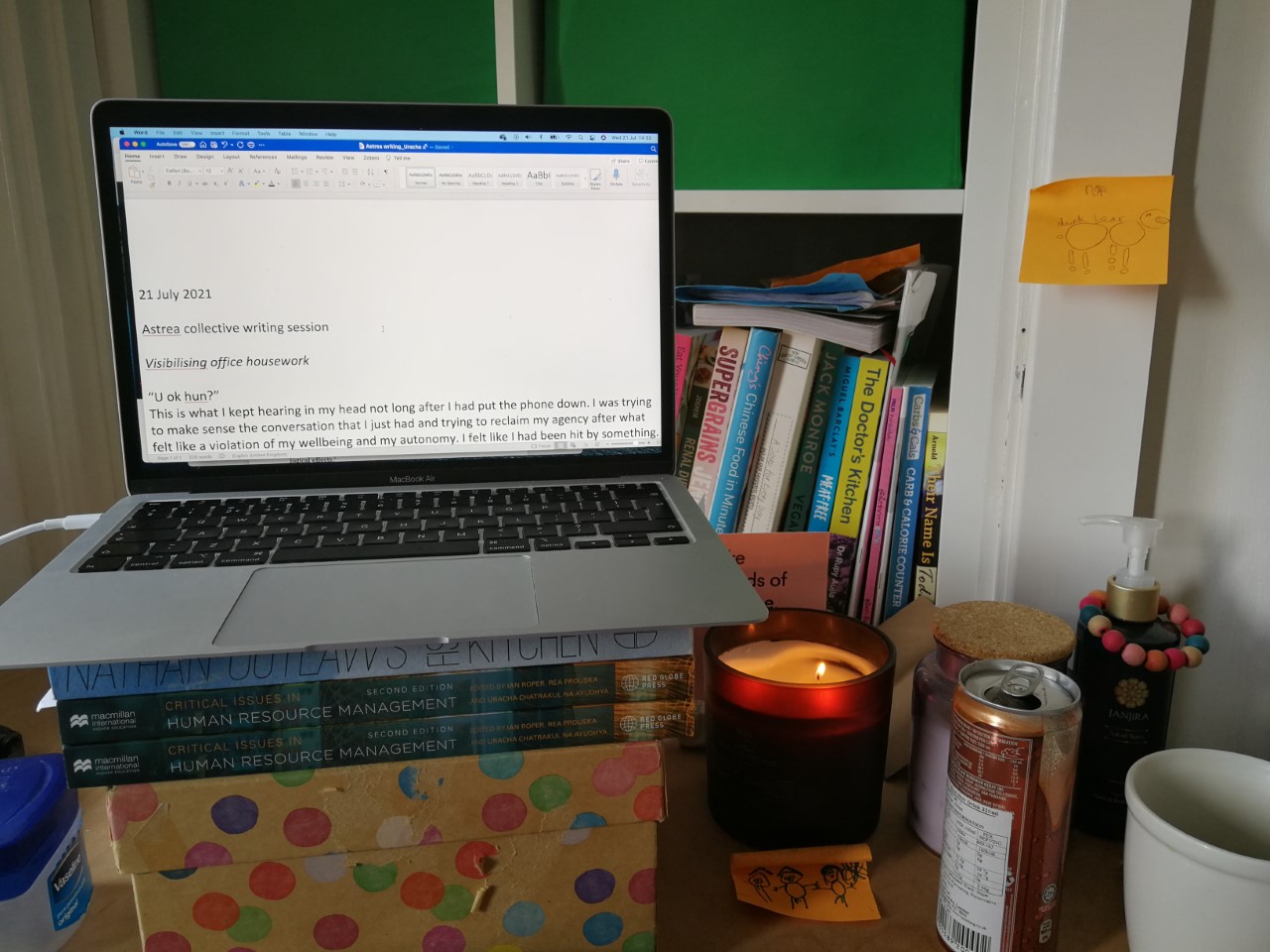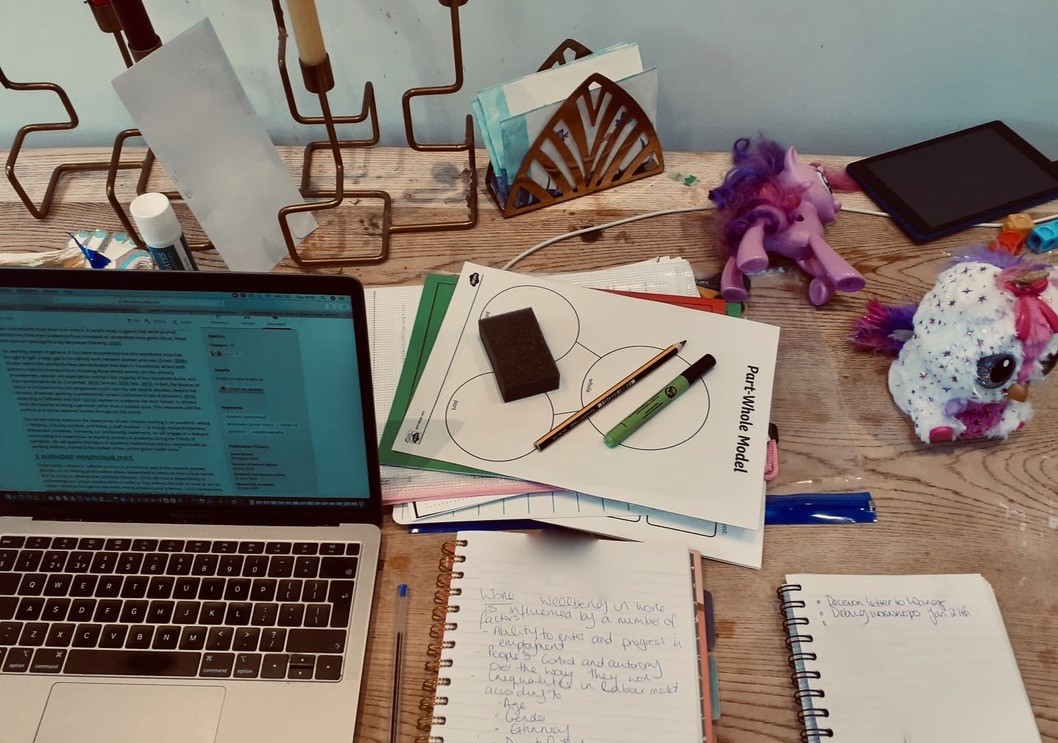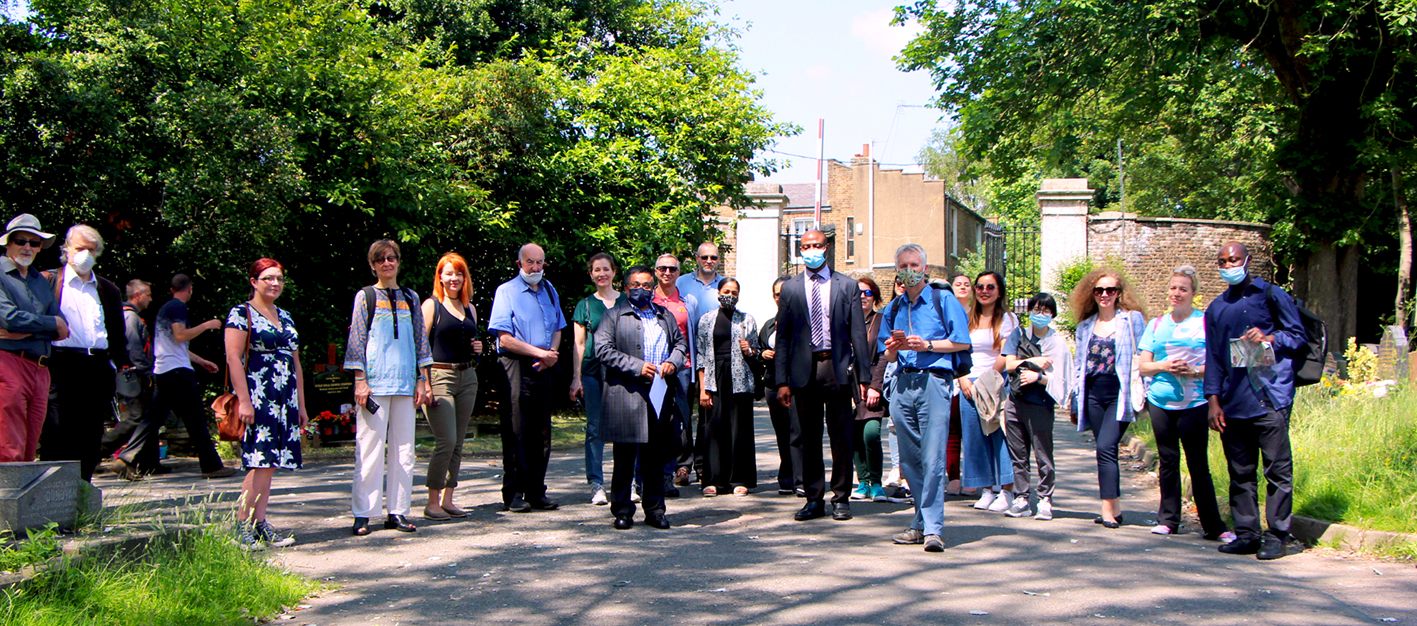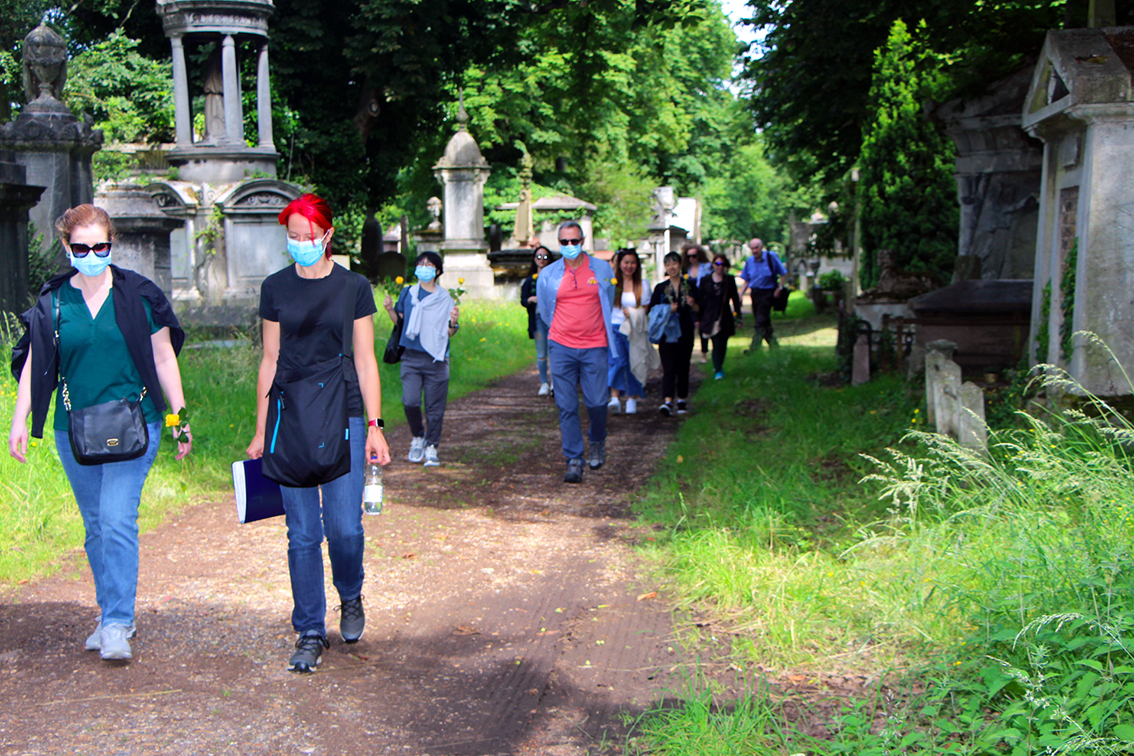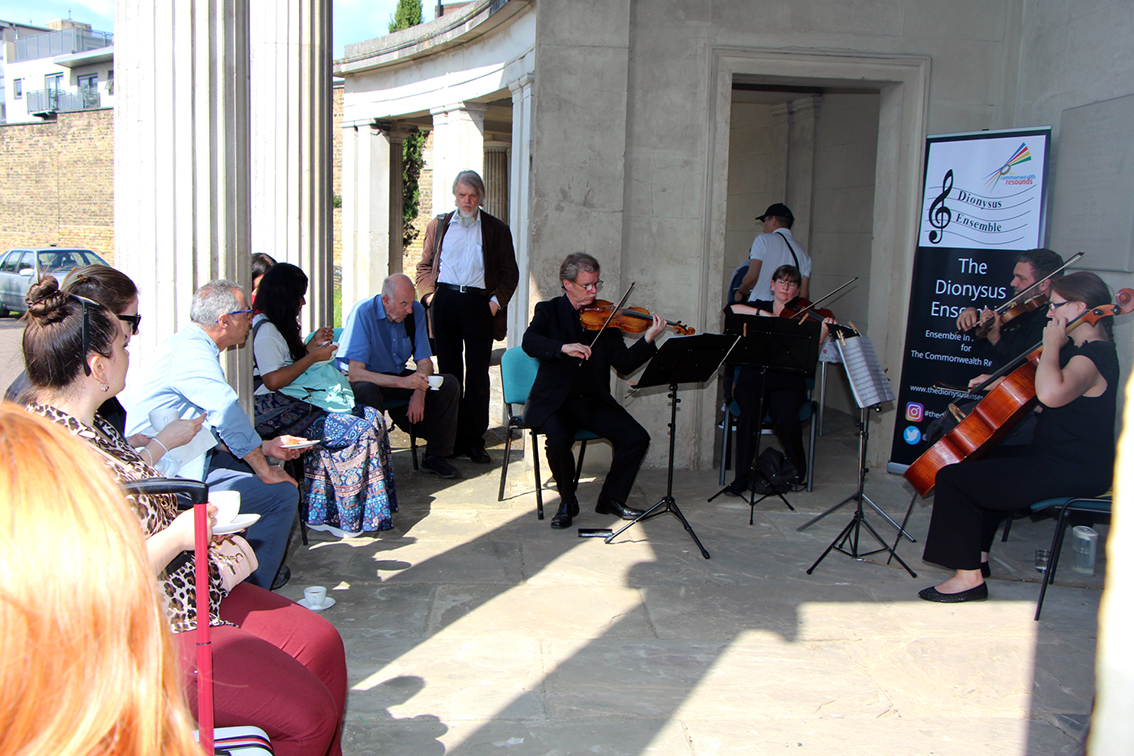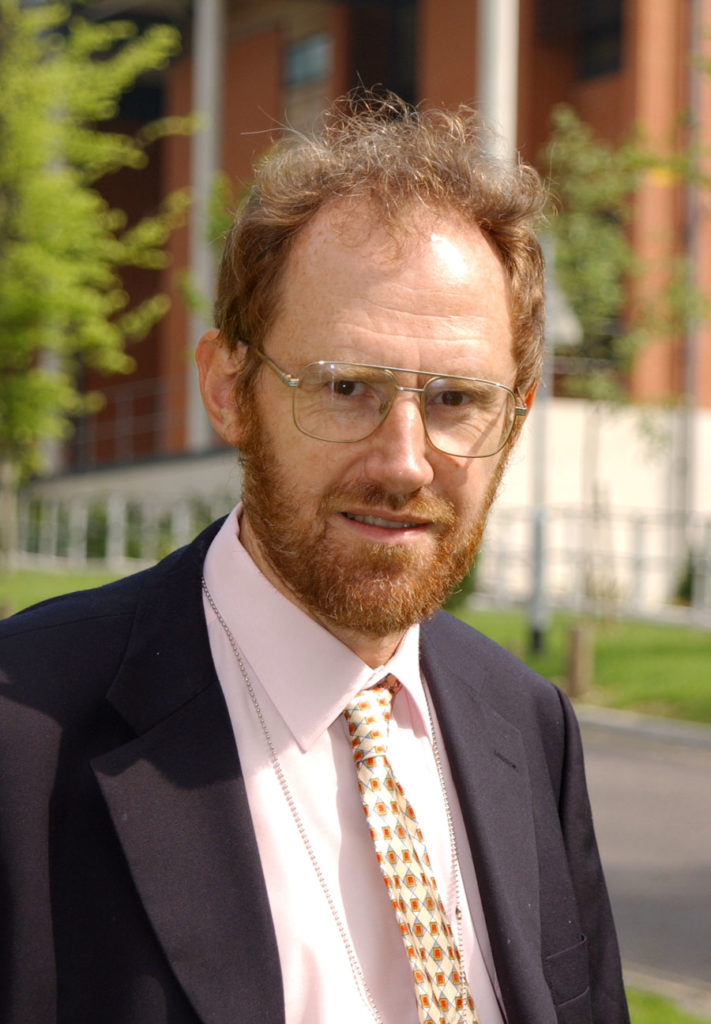This article was written by Kayleigh Woods Harley, project support coordinator in Birkbeck’s Strategic Projects Directorate. She chairs Birkbeck Astrea, a staff network for women, transgender and nonbinary people in professional and support roles. Astrea hosted Uracha Chatrakul Na Ayudhya and Aylin Kunter for a talk on office housework in May 2021 and this will be followed by a series of collective writing workshops to allow members to process their thoughts and feelings about office housework. The goal is to publish the writing in an academic journal on gender and work. In this blog Kayleigh talks about her experience of the first collective writing session in July 2021.
I first came across the term ‘office housework’ during an Astrea event in May 2021, led by Aylin Kunter and Uracha Chatrakul Na Ayudhya, two academics who have collaborated in the past on the interactions between gender and work. Their talk was a natural extension of their previous research, but also a departure in that they were proposing to bring Astrea members along with them on a new strand exploring the particular experiences of professional services women, transgender and nonbinary people. I wasn’t familiar with the idea of office housework, nor aware that it tends to be undertaken by those with the least power in the workplace, making it an intersectional phenomenon. I now understand that office housework is all the tasks and responsibilities we carry out which are not part of our job description, nor are they rewarded or recognised as ‘work.’ And the more I thought about it, the more I realised I was doing it all the time.
So when Aylin and Uracha invited Astrea members to a collective writing session where we could think, through writing, about examples of office housework we had undertaken, I prepared a few notes ahead of time. Coming prepared to meetings is something I do often, as an extremely conscientious individual. You could argue that it’s a form of office housework, that feeling of always needing to go above and beyond to make sure you not only ‘turn up,’ but are ready to fully participate in a work-related meeting or interaction.
After some friendly deliberation over how to proceed and how long to give ourselves to write something, we muted our microphones and individually began to write. There was no script, no structure. Just write down what you feel, what you think. My mind turned from the stresses and worries of a normal workday and focused on one thing solidly for 30 minutes. It was possibly the fastest half hour of the day, and during that time I was engrossed, my mind completely engaged in the thinking-through of my subject. I was completely myself, by which I mean my authentic self, not my work self. This is a luxury I am rarely afforded.
The others had posted chat messages indicating they were ready to finish and even share their writing. Listening to them read their thoughts was a moment of pure connection. How brave they were for being able to write such honest things and to feel able to read them aloud! They could have chosen not to, and yet we each felt it was important to say what was on our minds, no matter how raw or emotional it might be. I read my piece, too, and felt immediately validated by their responses to it. How often do we take the time to say something uplifting or supportive to our colleagues? (Is doing so another form of office housework?) And yet I felt like the last hour or so had not felt difficult or straining, like a normal day spent at my living room table with my laptop open to my emails. It was a moment of true connection, of seeing and being seen for who I really am.
This feeling was not mine alone. Uracha affirmed, “For one hour today, I found myself being transported out of my daily chaotic work space into a safe and collective space through writing together and listening unreservedly to one another about office housework. It was truly freeing to be connected and to be heard, seen, and held.”
